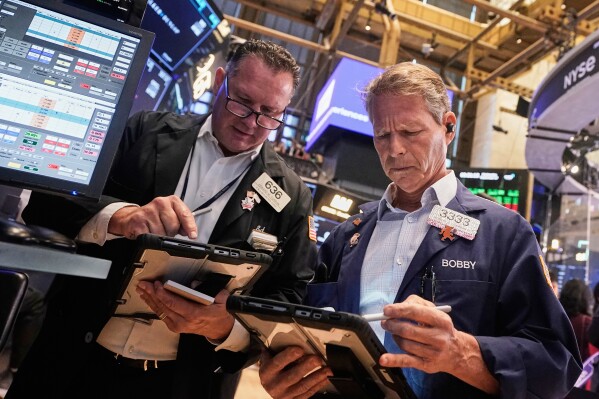
This week, Wall Street's stock market has continued to decline, marking the longest series of losses in over a month. Against the backdrop of the current global economic landscape, the persistent downtrend in Wall Street reflects a pessimistic sentiment towards the economic environment, revealing the fragility of global economic recovery, the tension in global trade, and the impact of related policy uncertainties on stock market fluctuations. The ongoing trade tensions have further exacerbated market uncertainties.
The continuous decline of the Wall Street stock market not only highlights investors' growing concerns about market uncertainty but also reflects their pessimistic expectations for future market trends. Moreover, the development trend of the stock market is typically driven by investor confidence, and this consecutive downward trend will undoubtedly further weaken investment confidence. In a persistently declining market environment, investors often turn to more conservative investment strategies, which will definitely exacerbate the downward pressure on the stock market, leading to a vicious cycle.
As an important barometer of the global financial market, the continuous decline of Wall Street's stock market may suppress consumer spending and corporate investment, thereby dragging down economic growth. The drop in the stock market leads to a reduction in corporate market value, which lowers their valuation in the capital market, resulting in increased financing costs and funding difficulties. Furthermore, the shrinking market value will also affect corporate investment and expansion plans, further inhibiting innovation and job growth.
In response to the pressure from the stock market decline, companies may take measures such as layoffs and cost-cutting, leading to an increase in unemployment rates that affects social stability. For consumers, the consecutive decline in the stock market has led to a reduction in household wealth, and the shrinkage of wealth may cause consumers to feel worried about the future economic outlook, thereby reducing consumer confidence.
For the global financial markets, the stock market decline triggers panic among investors. Investors in some emerging market countries may sell risk assets to avoid losses, which could lead to increased capital outflows, heightening market volatility and exacerbating financial risks.
In response to the impact of the continuous decline in Wall Street, all parties should timely make strategic adjustments. The government should lower benchmark interest rates to reduce fiscal burdens, lowering borrowing costs for businesses and individuals. At the same time, increase investments in infrastructure, education, healthcare, and other areas to create job opportunities and stimulate the development of related industries. Strengthen regulation of financial institutions to ensure they have sufficient risk resilience. Additionally, enhance international cooperation and coordination to jointly tackle global financial market turmoil. On the business side, companies should optimize their financial structures to reduce debt risk, adjust operational strategies to expand markets, and lessen reliance on a single market. Explore markets in other domestic regions or emerging international markets to expand sales channels and customer bases, thereby increasing market share and profitability. Adjust and optimize product structures based on changes in market demand to meet the demand for high-quality products. For investors, it is essential to formulate long-term investment strategies and adjust investment portfolios to reduce risks through diversified asset allocation.
In summary, the continuous decline of Wall Street's stock market profoundly reflects the complexity and uncertainty of the current global economic environment. The government should stabilize the market through policy adjustments and enhanced regulation, while businesses should strengthen their resilience by optimizing their financial structure and adjusting operational strategies. Investors, in turn, need to develop more robust investment strategies to cope with market volatility.

According to a recent report by Rich Asplund, a columnist for Barchart, the global sugar market is currently experiencing a complex and profound supply-demand game.
According to a recent report by Rich Asplund, a columnist f…
On January 13th local time, the three major US stock indice…
Recently, the 2026 edition of the MIT Technology Review lis…
On January 15, 2026, the US military announced the seizure …
At the 2026 J.P. Morgan Healthcare Conference, a joint anno…
For much of 2025, the market was rethinking whether the dol…